Anti-Racism Action Update
Updated May 10, 2023
Universities act as gatekeepers of opportunity in this country, with the power to make real the promise of meritocracy. We have the chance to teach our values, fundamental principles of human dignity. And we have the responsibility to model those values, in how we act as employer and consumer. You will see many of the metrics by which we measure our progress in this report.
Fordham’s student body has become increasingly diverse, nearing the diversity of this generation of Americans.
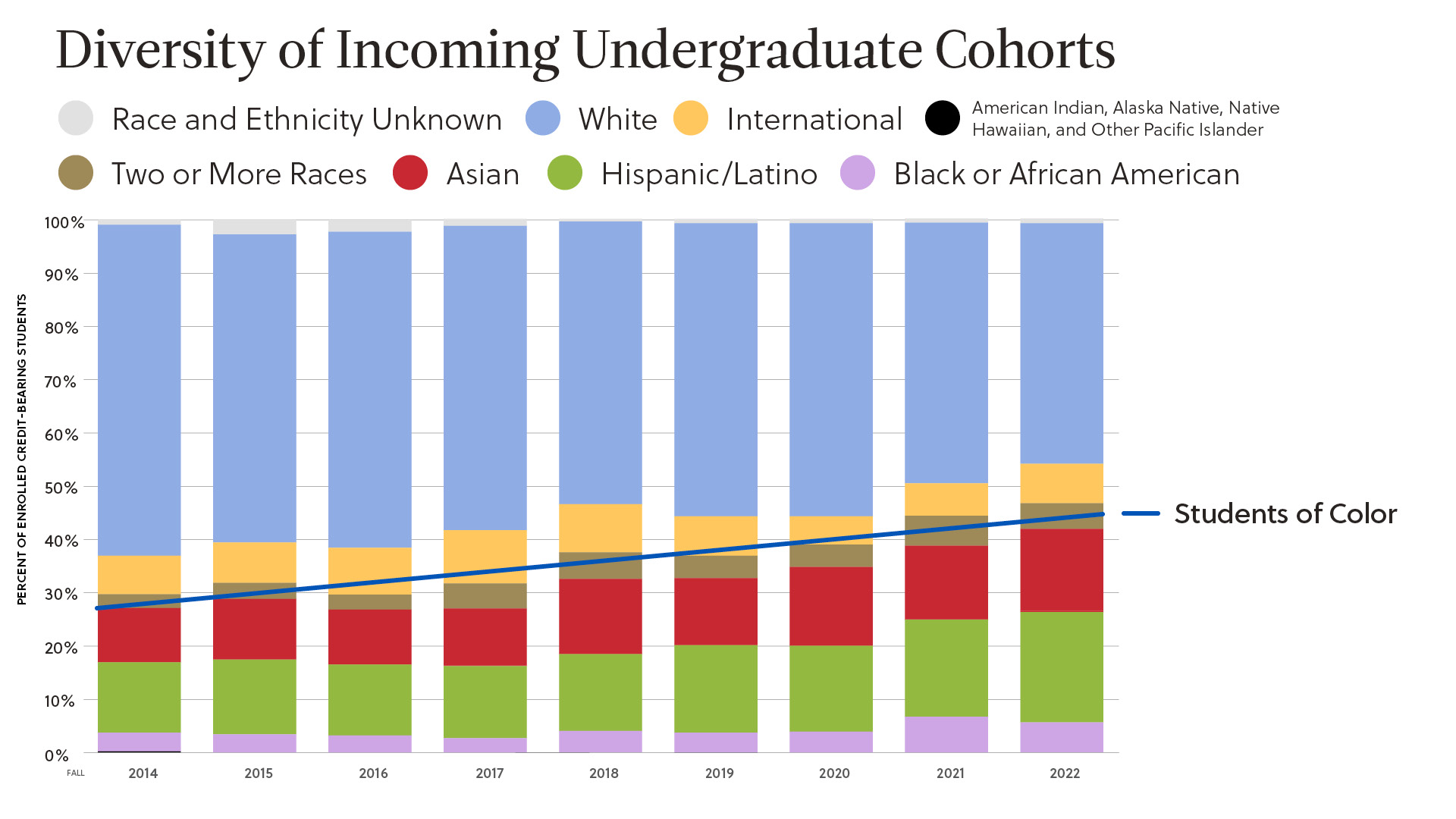
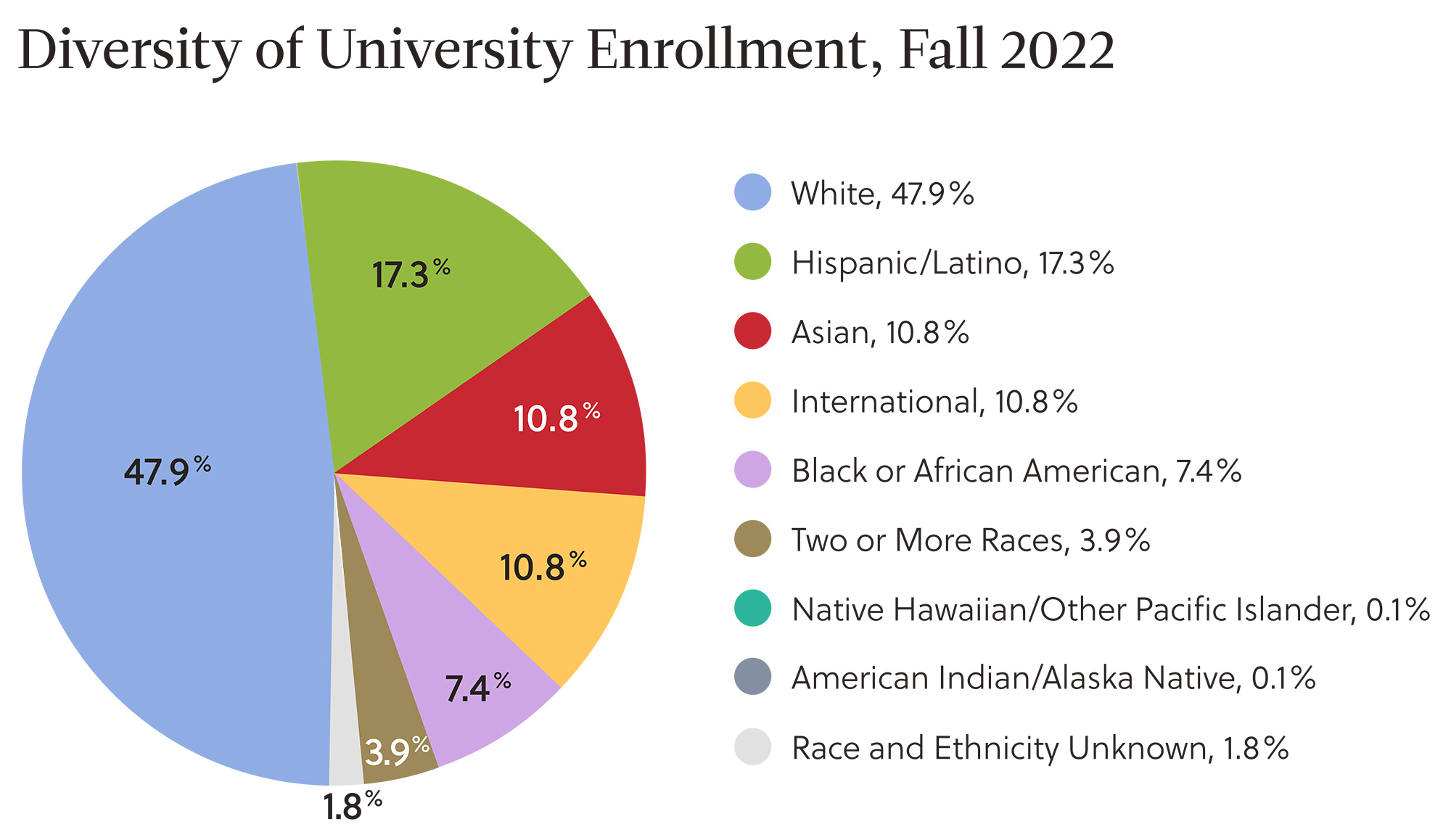
Gatekeepers of Opportunity
Fordham University was founded in response to exclusion. In 1841, Archbishop Hughes understood that the immigrants fleeing starvation in Ireland would also need food for their minds. They would need education and opportunity. And because so many of the Catholic immigrants streaming into New York were turned away from existing universities, he created new institutions that would welcome them.
When true to its roots, Fordham has welcomed other groups excluded by society throughout its long history (though sometimes far too haltingly and slowly.) We overcome our imperfections by remembering our core values. We understand through hard experience that the world squanders much of its talent. That we know what it means to invest academic excellence in those who are overlooked and to prove the world wrong. We know that we have not yet gathered the best and brightest when there are people missing from our community.
But getting into college is not the end of the fairy tale. We also measure our success in how well we level the playing field for our students, providing the support they need to flourish.
The focus of the University’s Strategic Plan on retention has lifted all of our students and all but eliminated race and class disparities in first to second-year retention.
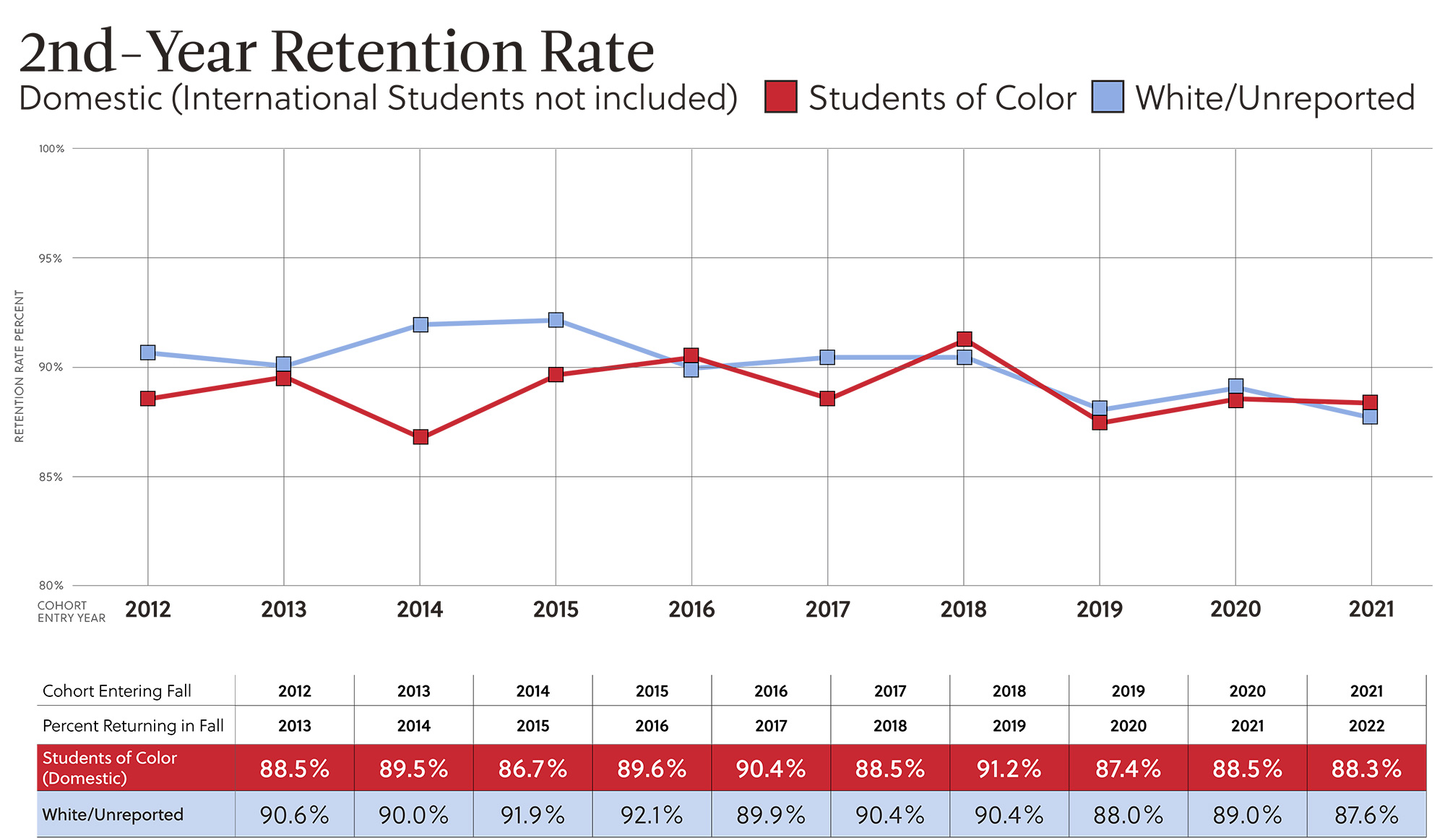
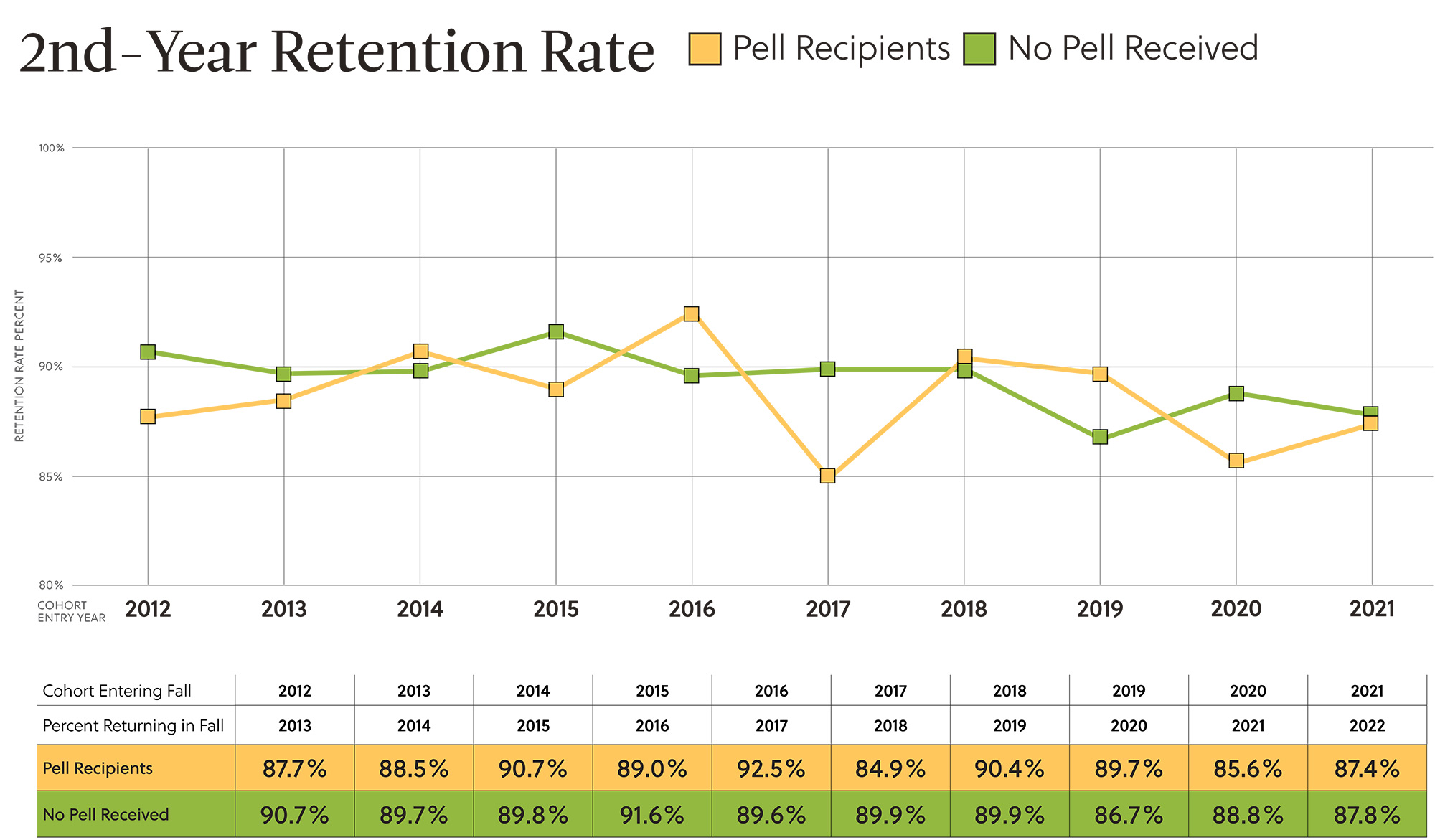
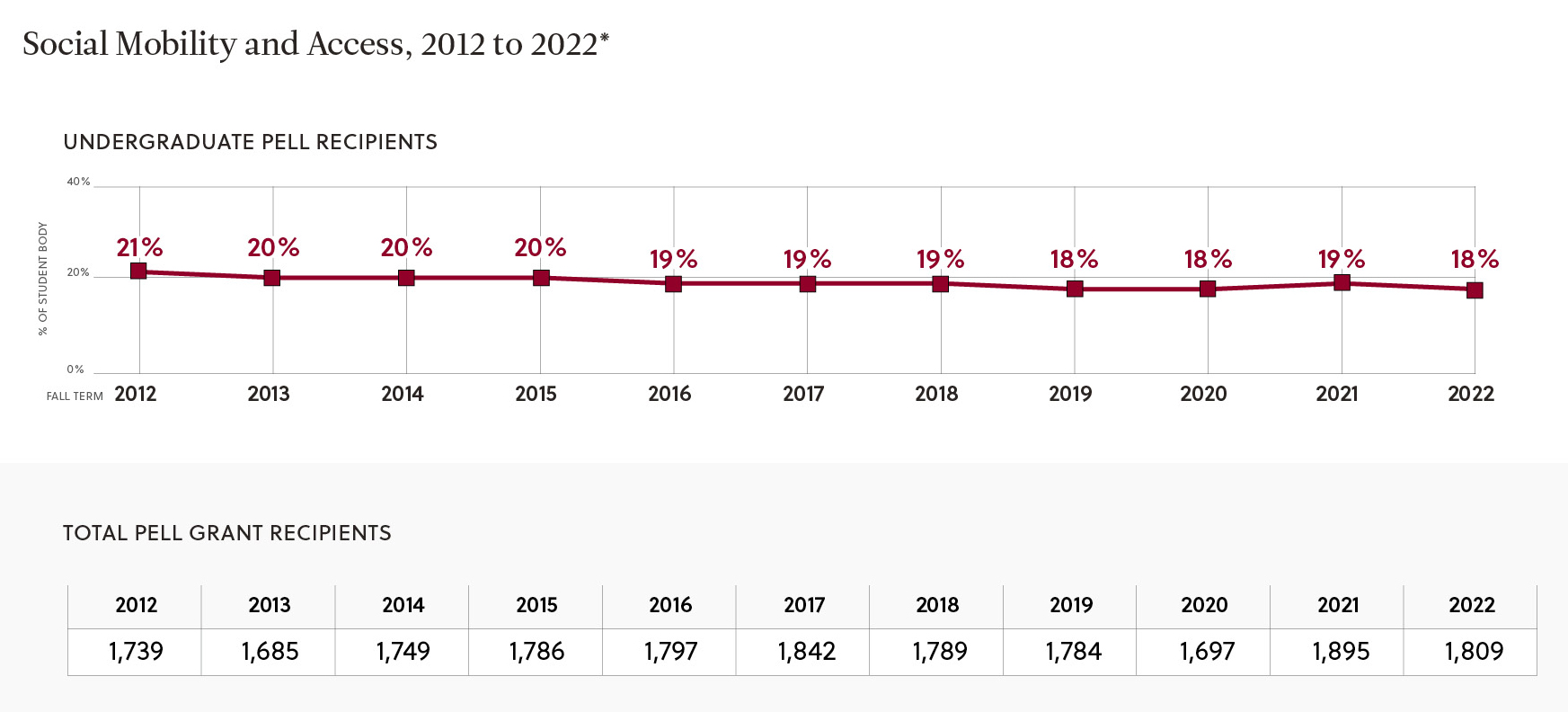
That progress has not yet made its way to lifting the four- and six-year graduation rates, where we still see disparities born of everything from financial difficulties to our need to make navigation of our systems and curriculum easier.
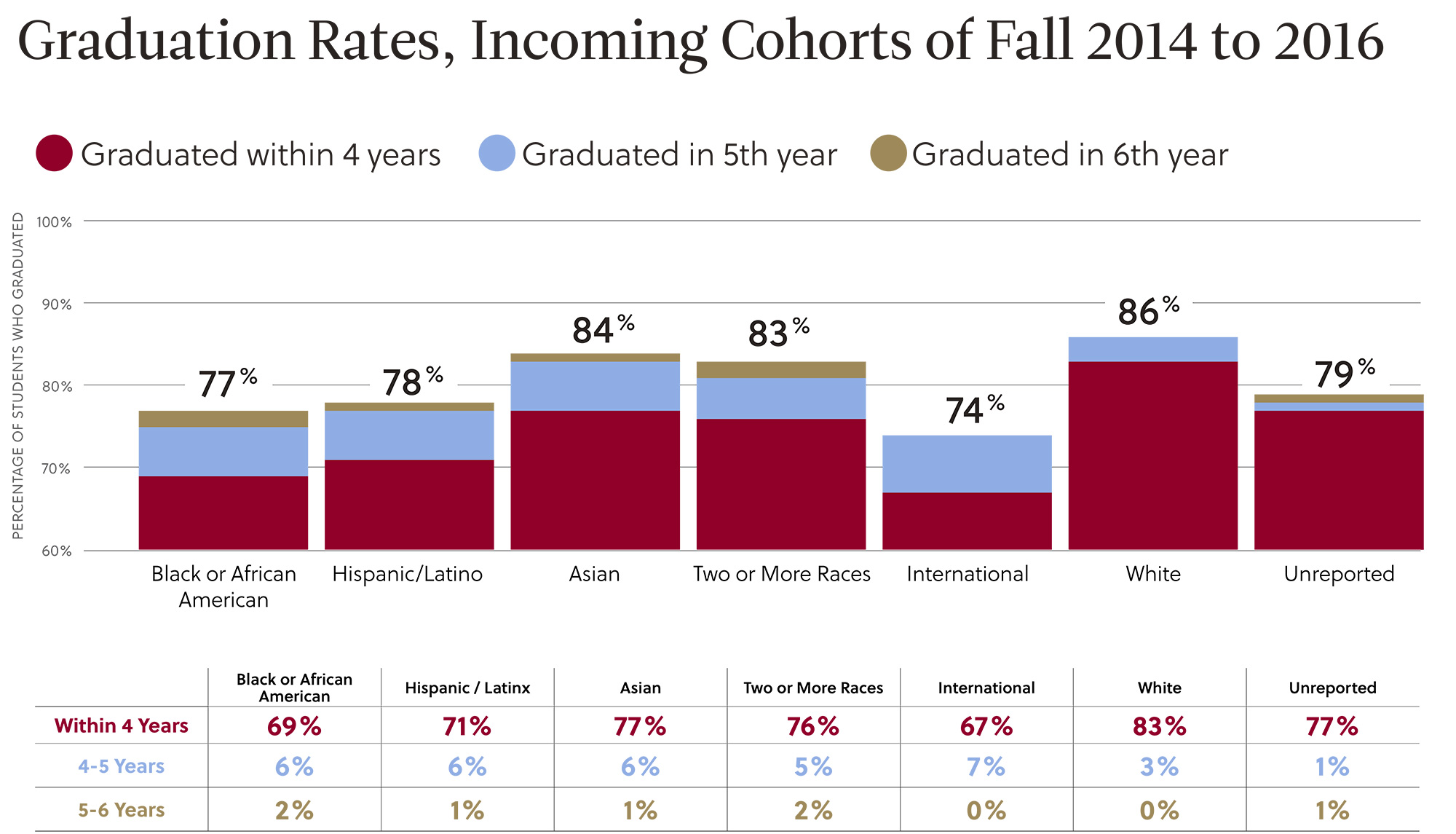
We will continue to work on improving academic advising, using technology to simplify systems and engage students, and providing more specific support for first-generation and commuting students, students of color and other groups who face particular obstacles in the world.
Teaching Our Values
Our purpose as a Jesuit, Catholic university is to transform the lives of our students, to forge character and inspire purpose. We teach the core tenet of our faith, that God loves us equally, and expects us to learn to love each other.
With deep engagement in the classroom, we teach the skills of global competence so necessary to succeed in the modern world and the empathy necessary to flourish. To seed those lessons, the Teaching Race Across the Curriculum (TRAC) Grant Program has funded over three dozen teams of faculty seeking to both integrate questions of race into core- and major- required courses, and to enhance faculty development in the teaching of these topics.
The faculties of the Colleges of Arts and Science and Gabelli are working to reimagine the Core Curriculum and how best to capture our Jesuit values and educational principles.
We work to improve our bias reporting and response systems, not because punishment is the solution to deep-seated bias, but because it matters to clearly state our values. We continue to balance the importance of free speech and the need to teach the skills of civil discourse and community. We find teachable moments even in conflict.
We have made great progress in successfully recruiting a more diverse faculty through thoughtful consideration of how broadly we conduct searches and how openly we look for talent.
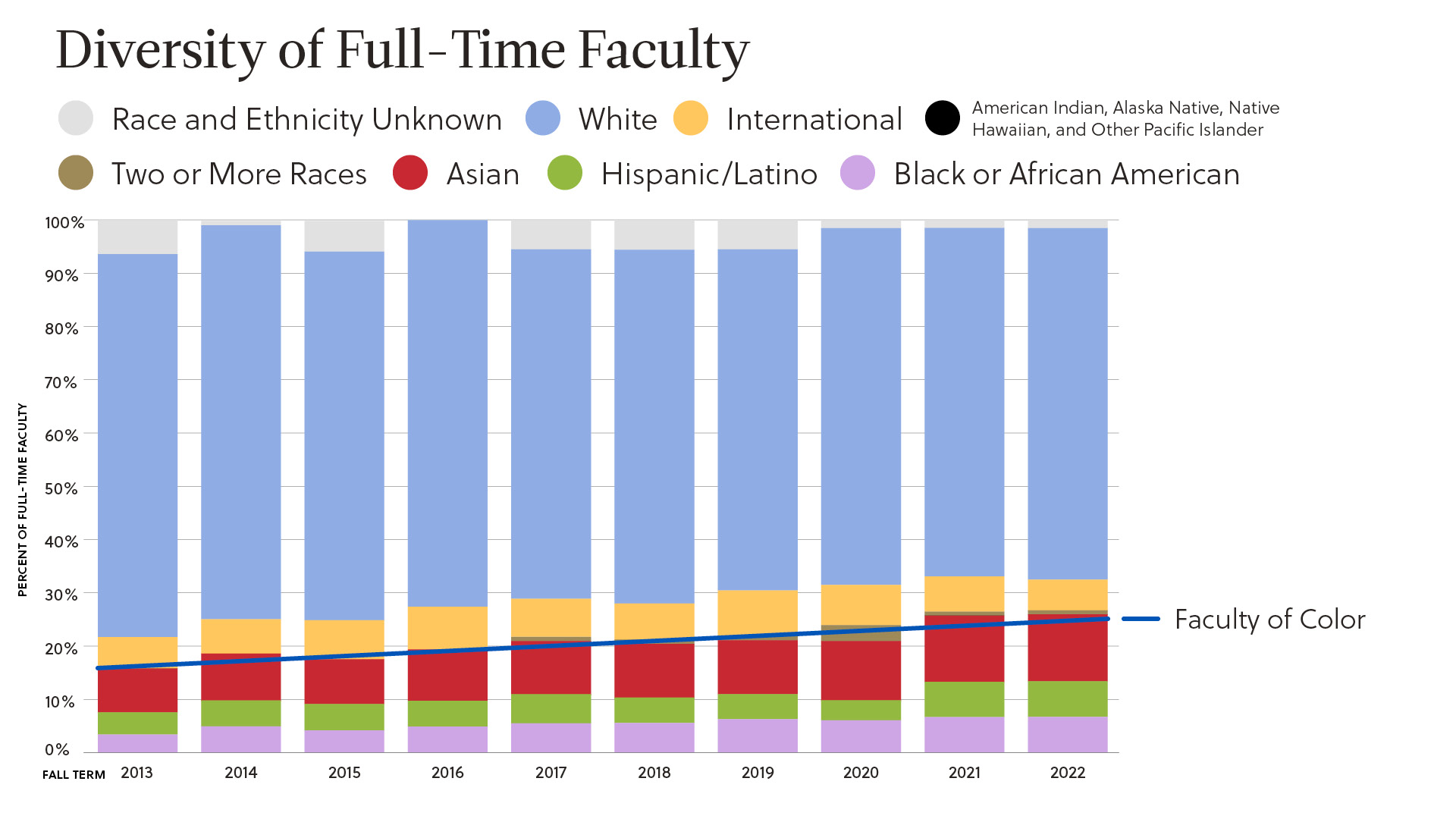
Modeling Our Values
We cannot tell our students that they can achieve anything they set their minds to if our own realities seem to show the opposite, that we ourselves have not fully gathered the best and brightest.
Fordham employs thousands, and works to model equity in our hiring and support. We examine our search practices to broaden the pool of talent. We do battle with those biases that might prevent us from hiring the most qualified person. While never immune from the problems of the world, we strive to create a kind and inclusive community, based in respect and empathy.
As a major consumer and contractor, Fordham strives to do business with minority-owned businesses, particularly in our neighborhood in the Bronx. We participate in a consortium with the Botanical Gardens and Bronx Zoo to do outreach and training for MBEs.
The Work to Come
As a Catholic institution, the fight for racial justice is fundamental to our faith. As a Catholic university, opportunity is fundamental to our mission. We carry on this work, in true Jesuit fashion, striving for "magis," the ambition to try harder, dream bigger, achieve more.
Jesuit universities are called to be agents of social and spiritual transformation. We are called to enter fully into the lives of those whose dignity has been stripped away by poverty, racism, displacement, xenophobia, and other dehumanizing forces.
- Arturo Sosa, S.J., Superior General of the Society of Jesus